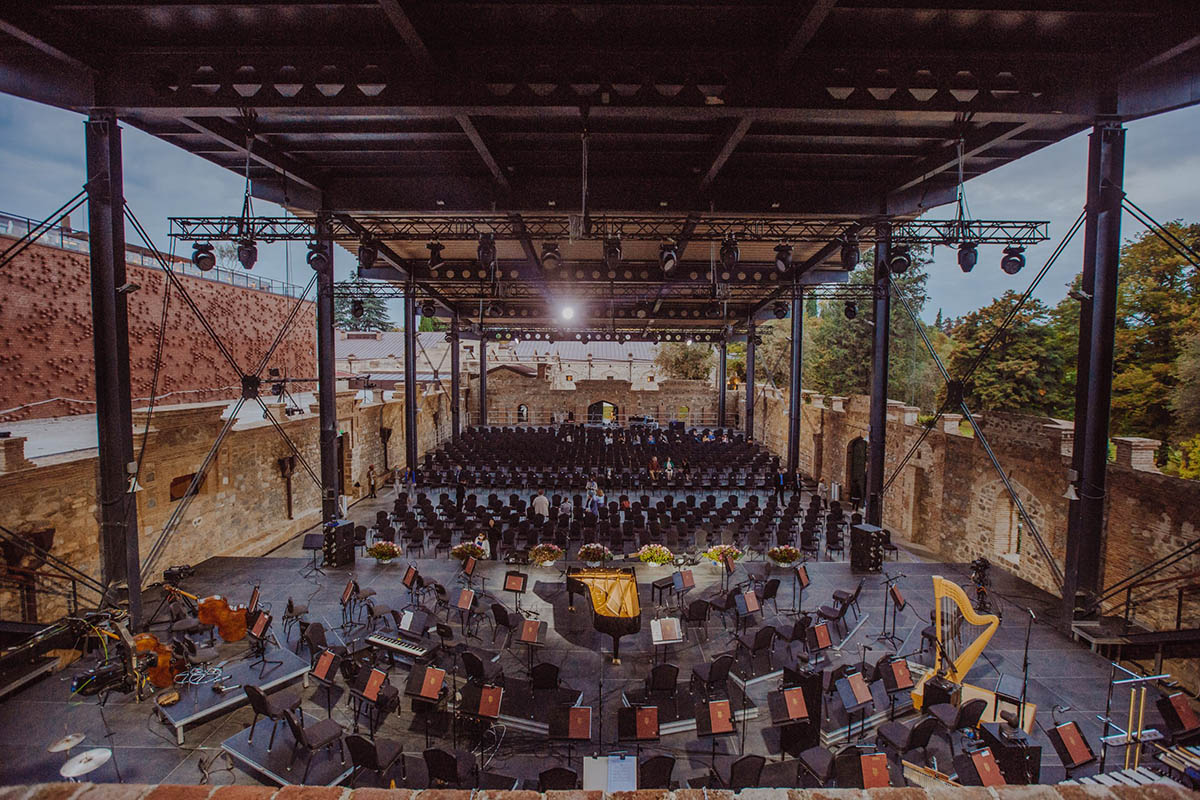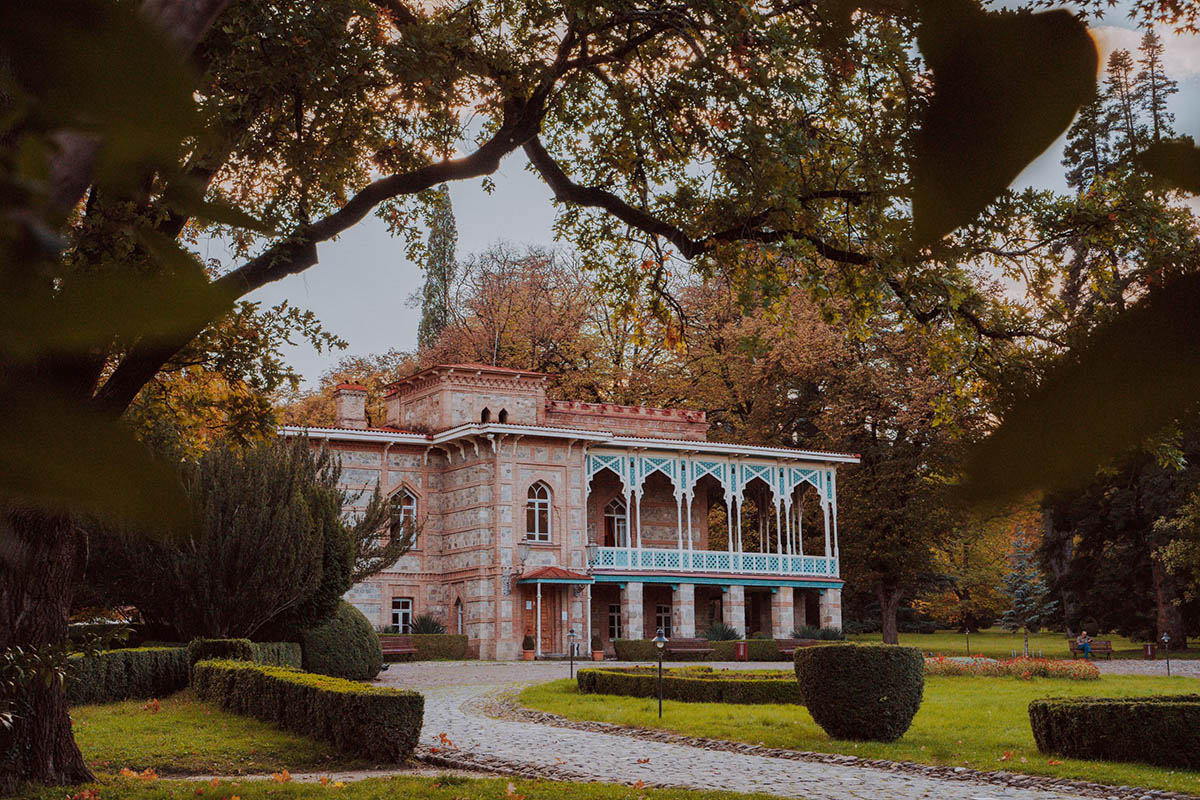
Tsinandali Festival and the Pan Caucasian Youth Orchestra return to Georgia’s wine country
Nestled in the heart of Kakheti, Georgia’s premier winemaking region, the Tsinandali Estate was the birthplace of the first bottle of Georgian wine. It is the site of many firsts: the estate was also home to the first piano in Georgia, where it remains on display today. The Tsinandali decorative garden was the first European-style garden in Georgia.
Between September 2nd and 11th, the estate will once again serve as a pioneering cultural space when it hosts the Tsinandali classical music festival, foregrounding the work of promising young talent from across the region as well as world-renowned stars.
The magnificent estate is just 79 kilometers from Tbilisi, and during the 19th century, served as a sort of rendezvous point for tolerant-minded members of the Russian intellectual elite. Their host was Prince Alexander Chavchavadze, a poet, translator, soldier, public benefactor, and the father of Georgian Romanticism, who transformed the estate into a flourishing hub of Georgian cultural life. Chavchavadze introduced modern methods to the millennia-old practice of Georgian winemaking, and was also an innovator in the field of agriculture: he was the first Georgian to produce silk, wheat, and sunflowers. Georgia’s rich viticultural history is preserved today in the Tsinandali Estate’s historic enoteca, home to a collection of over 16,500 bottles of wine, and 70 different varietals.
The Chavchavadze Palace is decorated with Georgian, Russian, and French furniture, while the Tsinandali garden is home to over 1,500 species of trees, shrubs and bushes, and hosts annuals and perennials from every continent on earth. Spanning an impressive 18 hectares, French writer and visitor Alexandre Dumas described it as the “Garden of Eden”.
Chavchavadze’s wide social circle was comprised of the most prominent cultural figures of the day. At Tsinandali Estate, he hosted such luminaries as Russian exile and Romantic writer Alexander Lermontov, Dumas, and Alexander Pushkin himself. Tsinandali also served as a salon for exiled Decembrists, who congregated there to unwind with Saperavi wine and marvel at the manicured garden. These guests named Tsinandali Estate “the Literary Heart of Poets and Writers”.

Tsinandali garnered a reputation not only as an elite cultural center but also as a small oasis of relative peace in a part of the Russian Empire where conflicts frequently raged. The tranquility was briefly shattered in 1854, when Lezgin tribesman from Dagestan ransacked the palace and kidnapped 23 women and children.
But the Tsinandali estate’s tradition of promoting high culture and peace has been resurrected in recent years. Since 2007, the Silk Road Group has invested heavily in the restoration of the Tsinandali Estate, with the aim of returning it to its former glory and purpose. At the center of this revitalization is the Tsinandali Festival, a 10-day classical music festival that brings together world-renowned artists and young, emerging talent from across the region.
This year, the Pan Caucasian Youth Orchestra (PCYO) returns to the Tsinandali Festival for the first time since before the pandemic. The PCYO brings together over 80 young musicians from across the region. The orchestra was conceived as an effort to both elevate promising talent and to foster understanding and collaboration. The conductor of this year’s orchestra is Oksana Lyniv of Ukraine. Lyniv recently became the first woman to head an Italian opera orchestra and has become a star of the classical music scene. She will be joined by a full symphony orchestra comprised of young people from Georgia, Amenia, Azerbaijan, Kazakhstan, Turkey, and Ukraine.

Tsinandali garnered a reputation not only as an elite cultural center but also as a small oasis of relative peace in a part of the Russian Empire where conflicts frequently raged. The tranquility was briefly shattered in 1854, when Lezgin tribesman from Dagestan ransacked the palace and kidnapped 23 women and children.
But the Tsinandali estate’s tradition of promoting high culture and peace has been resurrected in recent years. Since 2007, the Silk Road Group has invested heavily in the restoration of the Tsinandali Estate, with the aim of returning it to its former glory and purpose. At the center of this revitalization is the Tsinandali Festival, a 10-day classical music festival that brings together world-renowned artists and young, emerging talent from across the region.
This year, the Pan Caucasian Youth Orchestra (PCYO) returns to the Tsinandali Festival for the first time since before the pandemic. The PCYO brings together over 80 young musicians from across the region. The orchestra was conceived as an effort to both elevate promising talent and to foster understanding and collaboration. The conductor of this year’s orchestra is Oksana Lyniv of Ukraine. Lyniv recently became the first woman to head an Italian opera orchestra and has become a star of the classical music scene. She will be joined by a full symphony orchestra comprised of young people from Georgia, Amenia, Azerbaijan, Kazakhstan, Turkey, and Ukraine.


